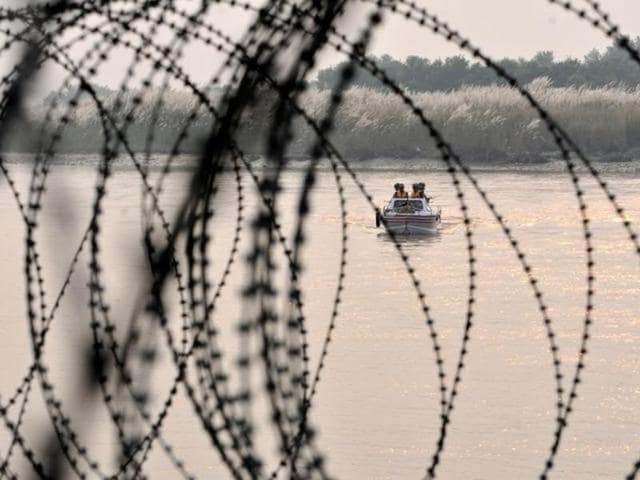Indus Waters Treaty: Another India-Pakistan showdown over hydro projects?
India and Pakistan are possibly headed for another showdown on water after New Delhi said on Thursday it wouldn’t be party to a court of arbitration process on Kishenganga and Ratle hydroelectric projects – a demand by Islamabad accepted by World Bank.
India and Pakistan are possibly headed for another showdown on water after New Delhi said on Thursday it wouldn’t be party to a court of arbitration process on Kishenganga and Ratle hydroelectric projects – a demand by Islamabad that has been accepted by World Bank.

The World Bank had brokered the Indus Waters Treaty in 1960 and has a specific role in the resolution of differences.
Kishengaga is a tributary of the river Jhelum and the Rs 57.8 billion run-of-the-river project is coming up in Bandipora in Jammu and Kashmir.
The 850 MW Ratle project is on the Chenab in Doda district.
India sought for the neutral experts looking into the bilateral differences over the technical aspects of the projects, while Pakistan asked for a court of arbitration.
Read: Indus water tussle heats up between India and Pakistan
The World Bank decided to proceed with both steps, and India says the movie is not in accordance with the Indus water treaty.
“Inexplicably, the World Bank has decided to continue to proceed with these two parallel mechanisms simultaneously. India cannot be party to actions which are not in accordance with the Indus Waters Treaty,” external affairs ministry spokesperson Vikas Swarup said.
He said the government will examine further options and take steps accordingly. India’s grouse is that the World Bank hasn’t followed the procedures laid out in the treaty.
India says Pakistan’s objections are technical in nature and the bilateral Permanent Indus Commission (PIC) can address these technical ‘questions’.
If PIC can’t resolve the matter, it is termed ‘difference’, which is addressed by a neutral expert(NE) appointed on request by either Party to the World Bank.
If the neutral expert decides so, he or she can refer a part of a difference or the whole of it for resolution by a court of arbitration (COA).
The COA has seven members, two arbitrators each to be appointed by India and Pakistan, and three ‘Umpires’ nominated by certain global dignitaries. If parties can’t agree on who will nominate the ‘umpires’, a draw of lots decides which three of these global dignitaries will nominate one ‘umpire’ each.
India points out Pakistan had lost its case in a COA in 2013 when it said the Kishenganga project couldn’t be built in a way which would lead to diversion of water in tributary of the river. This objection was overruled.
Ninety-five % of the project is complete and it was due for commissioning this month.
Regarding Ratle, Pakistan wanted the planned storage capacity of the project to be reduced to eight million cubic metre from 24 million cubic metre.
Read: World Bank asks India, Pak to agree to mediation on Indus Waters Treaty
Pakistan argued the existing design would lead to reduction of 40% of water flow, which is against the Indus Water Treaty provisions. India found Pakistan’s charges unfounded and said it was in no way violating any provision of the treaty.
Nevertheless, Pakistan persisted and raised objection to the technical design parameters such as pondage (volume of water used for running turbines) again.
India points out Pakistan itself suggested a neutral expert even in 2015, which it rescinded later. It notified its intention to India to move for COA. India didn’t agree to this because these design matters, preferably addressed by PIC, or at the most by NE.
Pakistan approached WB in August 2016 for COA, which India says was against the laid out procedures under the Indus Water Treaty.
Since the PIC was unable to agree on resolving these differences, India notified Pakistan in august 2016 at the Commission level that the differences should be addressed by NE.
This was after a meeting of water secretaries of the two countries, which India says it had offered out of good will, in July did not address the matter.
Get Current Updates on India News, Lok Sabha Election 2024 Live, Karnataka Puc Result Live Updates, Election 2024 along with Latest News and Top Headlines from India and around the world.



